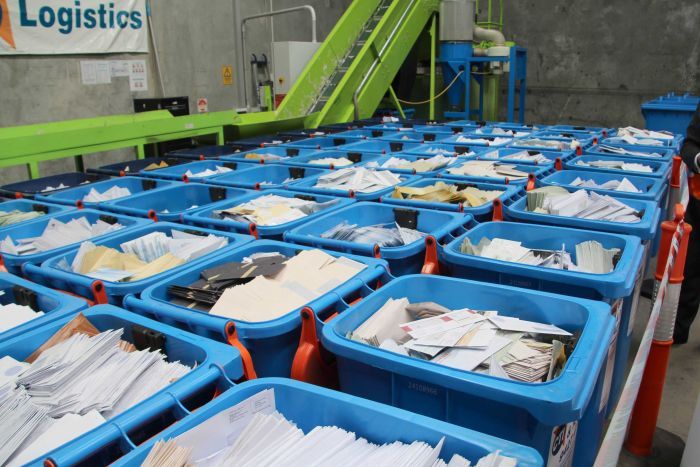Romance scams most costly but tech, investment fraud on rise in WA, ScamNet figures show
Posted
 Photo:
Mail scams continue to dupe West Australians, with almost 70,000 letters seized in the past two years. (ABC News: Eliza Laschon)
Photo:
Mail scams continue to dupe West Australians, with almost 70,000 letters seized in the past two years. (ABC News: Eliza Laschon)
Fewer West Australians fell victim to fraud last year, but a sharp increase in technology and investment losses has caused concern, with those over the age of 55 most vulnerable.
New ScamNet figures show West Australians were duped out of more than $10 million in 2016, with 377 people ripped off.
Relationship fraud remained the most common and costly for the state, causing a total loss of $4.1 million despite 34 per cent fewer people falling foul to romance scams.
Commerce Minister Michael Mischin said while there had been a drop in losses from fraud and the number of people falling victim in 2016, technology and investment scams had bucked the trend.
"Technology scams have seen a 21 per cent increase in victim numbers, while the losses have almost tripled," he said.
"Scammers contact their victims usually by phone and pretend to be from a well-known telecommunications company such as Telstra, saying their computer has been hacked.
"They trick the person into giving them remote access to their computer and then ask them to log on to their online banking, where the bank accounts are later raided."
Losses due to investment scams doubled to $2.6 million, despite a slight drop in the number of victims, and Mr Mischin said people over the age of 55 were particularly vulnerable.
Gosnells resident Peg, 81, was tricked into parting with tens of thousands of dollars after falling victim to scammers pretending to represent Telstra BigPond.
Peg, who did not want to give her last name, said scammers called her landline and said her laptop was being hacked.
"[They were] there to help me find this person who was trying to break into it. Which of course I naturally swallowed — I would not call myself computer literate by any means," she said.
The scammers told Peg to withdraw $10,000 cash from the bank and to send it to various people in India by Western Union and MoneyGram, where police would arrest the hackers before she was reimbursed by Telstra.
Over two weeks, the scammers continued to hassle Peg for money, and in total she spent $22,000.
"Towards the end I knew I was being scammed ... [I felt] highly annoyed of course, annoyed with myself and with them," she said.
Peg said her generation was raised to be more trusting, but times had clearly changed.
"I think we grew up in an era of trust, greater trust, and you just can't do that now sadly," Peg said.
Take a cynical approach, watchdog says
Of the more than 1,730 people who reported identity fraud across the country last year, a third of victims were aged over 55.
 Photo:
Michael Mischin took time out on Tuesday to help destroy scams letters bound for homes. (ABC News: Eliza Laschon)
Photo:
Michael Mischin took time out on Tuesday to help destroy scams letters bound for homes. (ABC News: Eliza Laschon)
Acting Commissioner for Consumer Protection David Hillyard reiterated the call for people in that age bracket to be more wary.
"They're [scammers] appealing to the understanding from that age group that government is always going to be fair with you and if it tells you to do something, you should be listening and reacting," he told ABC Radio Perth.
"Unfortunately I think ... you've got to adopt a very strong, cynical view about people who contact you out of the blue.
"Big corporations, big government agencies and the big banks will not contact you out of the blue and offer to provide services to you."
While email and telephone scams were found to be on the rise, scams initiated through the post are still occurring.
Mr Mischin said in the past two years, a joint operation between Consumer Protection and Australia Post intercepted almost 70,000 scam mail items bound for Australian homes.
Those letters, many informing recipients they had won a prize or lottery while asking for a small fee, were burned on Tuesday.
Topics: consumer-protection, people, fraud-and-corporate-crime, perth-6000, wa









